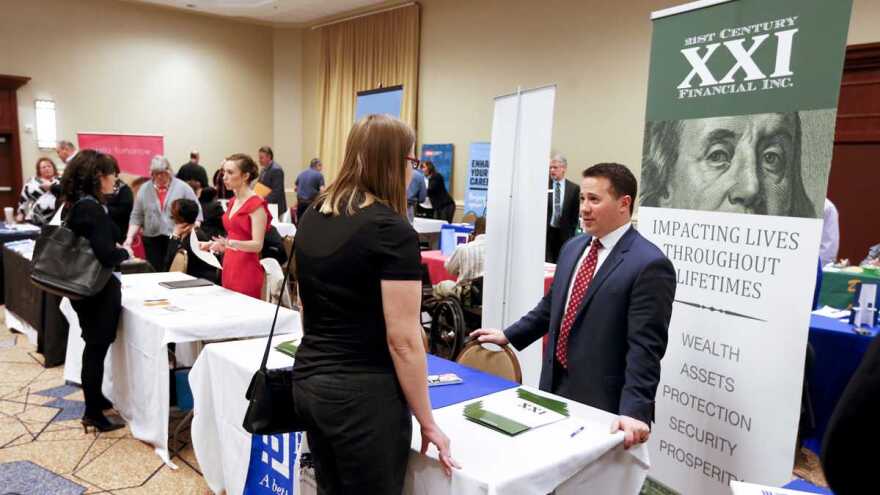In Pennsylvania, seven out of 10 workers don't have a college degree. That's a demographic that has been particularly hard hit by unemployment and wage declines since the 1980s.
This is according to the left-leaning Keystone Research Center's annual report, The State of Working Pennsylvania, found that white men without college degrees earn $5.31/hour less than they did in 1980. (All numbers have been adjusted for inflation.) African-American men without college degrees saw a decline of $5.17/hour. Since African-American men earn less than white men overall, that represents a larger percent wage decline.
College educated men have seen wages stagnate since the early 2000s. That's a change from the decades of improvement this demographic saw before.
"We've heard a lot in the general election campaign ... about the working class [with] less than a college degree not doing well," said Mark Price, labor economist for Keystone Research Center. "I think it's also important to remember that the economy has shifted in a fundamental way also for folks with a college degree."
There is one group that has seen improvement since the 1980s: women. White and African-American women with college degrees saw wages steadily increase since 1980, 41 percent and 39 percent respectively. African-American women without college degrees have seen wages increase as well. They earn almost $2.50/hour more than similarly-educated white women in Pennsylvania.
Despite these improvements, women still earn less than men in similar demographic groups.
Who's to blame?
There is bipartisan agreement that wage stagnation and decline are a key problem in the United States. But the culprit is less clear.
Keystone Research Center attributes these declines to a top-heavy economy that helps grow wages only for the wealthiest 1 percent of Pennsylvanians. They found the higher your household income, the more likely it is you've benefited from economic growth since 1980. Those already disadvantaged — including minorities and those without college degrees — have not seen similar benefits.
KRC advocates for raising the minimum wage, investing in smart manufacturing, and strengthening organized labor, among other initiatives.
Meanwhile, the more conservative Commonwealth Foundation identifies different challenges, like the high tax burden on companies and workers. According to a May 2016 policy memo, Pennsylvania's overall tax rate is the 10th highest in the country, and the corporate tax rate is the highest. They say this forces companies and consumers to take their business elsewhere, slowing Pennsylvania's economy for everyone.
In an emailed statement, Commonwealth Foundation's Vice President of Policy Nathan Benefield said his organization has free-market ideas to improve wages for everyone.
"Those solutions — allowing private retailers to sell liquor, moving new public workers to 401(k)-style pension plans, controlling the growth of state spending, reducing corporate income taxes and the overall tax burden, protecting workers from union abuses — have resulted in more jobs and faster income growth in states taking that approach."
Pennsylvanians will get a chance to decide which plan they agree with more this November. While Democratic Senate candidate Katie McGinty has proposed a job creation plan that resembles that of the Keystone Research Center, Republican incumbent Pat Toomey has spoken out in favor of free market ideas, like reducing corporate tax incentives.
Keystone Crossroads is a statewide public media initiative reporting on the challenges facing Pennsylvania's cities. WPSU is a participating station.



